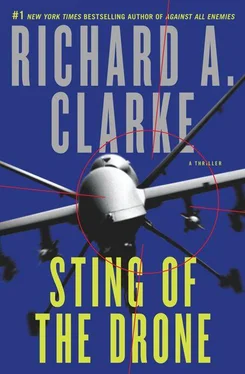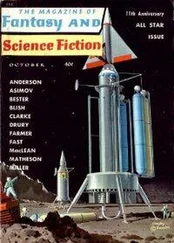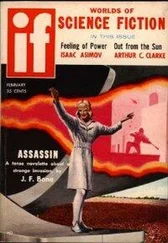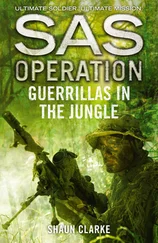“ Salam Alekhem, Khush Aamdeed. ” The old man sitting on the pile of rugs offered warm greetings to Ghazi. Rashid Bakri Qazzani, the leader of his tribal clan, had become so much more. Now men from many tribes worked for him, Punjabis, Baluchis. His international network bought and sold weapons, heroin, vehicles, land, electronics, gold, currencies, and fuel on both sides of the Pakistan-Afghanistan border and, in the case of heroin, well beyond into Asia and Europe. He did not rise, but did grasp both of Ghazi’s hands and offered his cheeks to be kissed. “My regrets, that your father has gone to Allah before his time,” he whispered in Ghazi’s ear.
“ Ramadan Kareem, ” Ghazi offered as he joined the circle of five others who sat on rugs in a semicircle around Qazzani. Two boys appeared with chai and dates. When they left, Rashid Bakri Qazzani began.
“Mohsin, as you know, was droned by the Americans. My youngest brother, my brother for fifty-five years. My right arm.” The men in the circle looked at the rugs below them and offered brief words of prayer.
“Now, all of our chiefs in Europe, including Omar Nawarz, your father, Ghazi. Four men from the villages here who years ago we sent to schools in Australia, Canada, Turkey. For decades they built our operations in Europe. Now, gone.”
The men in the circle, Ghazi realized, were of his generation. They could all be in their thirties. One looked maybe younger. Were these the people who would take over now? Was that what this was about?
“But do not doubt that our operations continue, even now. They were designed to withstand deaths. We anticipate deaths in this business. Men have moved up, good men, men trained by those who have been killed.
“But before we move on, we must avenge their deaths.” The old man looked down at the carpet and when his head rose, his voice did, too, and the anger within him. “Who bombs luxury hotels now, in Europe? Who did this?”
The room was silent. No one would say what they were all thinking: the leaders of the European branch of the Qazzani crime cartel were killed because the man sitting in front of them had accepted a lucrative subcontract from the remnants of al Qaeda, had agreed to use Qazzani people to put Yemenis and Somalis into large suicide bombs and then have them explode on commuter railways in Berlin, Vienna, and Munich. Now, the Qazzani leaders in Europe were gone, their operations probably could not really be put back together, and the al Qaeda money would never show up.
Finally, Ghazi coughed. He addressed Qazzani with a deferential title. “ Janab, with respect, it wasn’t a bomb. It was a new kind of drone.”
“The Austrians say it was a bomb,” the man next to Ghazi offered. Like the others, except Rashid Qazzani, this was a man that Ghazi did not know. He had said his name, Bahadur, at the greetings. “They say it was Russians, guys in our business.”
“Yes, but there are videos that Austrian Security Police have. They slowed them down and they see a drone like a big black arrow and another black drone watching nearby.” No one asked how Ghazi knew. He was not really part of the clan, not like his father. His mother was a Canadian. He lived sometimes in Karachi but mainly in Vancouver, did his own business, whatever it was. Sometimes it had been special errands for Qazzani. He must have done them well. The old man trusted him, and now he had sent for him. “The Austrian Security Police work with the Americans. They will not tell their own people what they suspect,” Ghazi concluded. “They will keep the Americans’ secret, not tell the Ministers.”
Qazzani threw his head back and looked at the ceiling. “Drones. American drones. They chased al Qaeda from here, but now, now they kill us, they kill my brother when he goes to Afghanistan, they kill the Taliban all the time.” He returned his gaze to the men around him. “Where do they live, these drones, where is the hive?”
“There are many, Janab, around the world.” Again it was Ahmed Bahadur, who ran operations in Asia and Australia. “They fly from bases in Afghanistan, Djibouti, Seychelles, other secret places in Europe and the Arabian peninsula. But their big hive, their television says, is in America, in their city for sin, Vegas.”
“Sin. Yes, these flying robots are very sinful,” Rashid Qazzani agreed. “But how do the robots … who tells them where to fly, and how do they know what to do?”
Bahadur deferred to Ghazi. “They are not really robots, Janab. Men fly them. These men are in Las Vegas and other places. They see what the drone sees, they fly it like an airplane, except their controls are in Las Vegas and what they do there is sent to the drone off a satellite in space using something like the Internet.”
Rashid Qazzani stared at Ghazi. Was he trying to understand what Ghazi had just said? No one spoke for several minutes. It became clear that their leader was thinking, assessing his situation, his options. Some of them had seen this before. Soon there would be a pronouncement, a big decision.
* * *
“Ghazi, my friend, we must stop the drones, not just to get revenge for our people, but to save ourselves. If we do not do this now, they will breed. They will come for us one day.
“Flies can be swatted. Men can be killed. These drones can be stopped. Ghazi, I want you to do this. You will understand how and I will give you all that you need.”
Ghazi bowed his head in respect. “Thank you for the honor, Janab. The men I work with in Kiev, they have some people who I have used before for special help. Computer men. They rent out these computer men for a high price.”
“You will have all that you need, my friend,” Qazzani promised. “As will you, Bahadur.”
Ahmed Bahadur looked confused. “ Janab? ”
“You have a mission, too. We have a job to do, for the Arabs. I agreed we would do it. I gave my word. They paid us half, a big half. We will do it.” Qazzani scanned the circle of men after his announcement, showing the palms of his hands, opening the floor for discussion.
The one who looked perhaps to be in his twenties spoke first. “Father, if the Americans were the ones who killed our people in Europe, it may be that they knew what we were planning. If we go ahead, won’t they be looking for bombs in the metros?”
“Yes, they may be. That is why, son, we will not do the train operations where they were originally planned. I have told the Qaeda people we will do it in the heart of the beast, in America. It will be harder, riskier, more expensive.” He let the thought sink in. “They have already sent the money. For a group that has so few of its own action men left, they still get the gold, from the secret Ikhwan, from the rich ones.”
Bahadur examined his sandals, summoning courage. “ Janab, I will do whatever you instruct, of course. My territory is the Pacific, Indonesia, Philippines. I live in Sydney. I do not know America. I do not know people who will do bombings there. And if we do the bombing in America, won’t they come after us here?”
“I know, nephew, I know. Even an old man can learn from his mistakes. Al Qaeda will still provide you with the bombers, from their new groups in the Yemen, Nigeria, and Somalia. But Ghazi Nawarz and his Ukrainians will help you with their computers. If you and Ghazi both succeed, the Americans will think Qaeda did all of it. Or the Taliban. And yes, they will go after them, even more, for a while. But not us, not us. And then they will finally leave.”
Qazzani signaled to Bahadur to help him stand up. The meeting was over. Rising, the older man pulled his nephew close and spoke into his ear in a whisper. “Tomorrow I will go to Iftar at your mother’s house. After we break the fast, you and I will sit alone in your late father’s diwan. We will discuss how you will do this. And your reward, Bahadur, your big reward.”
Читать дальше












